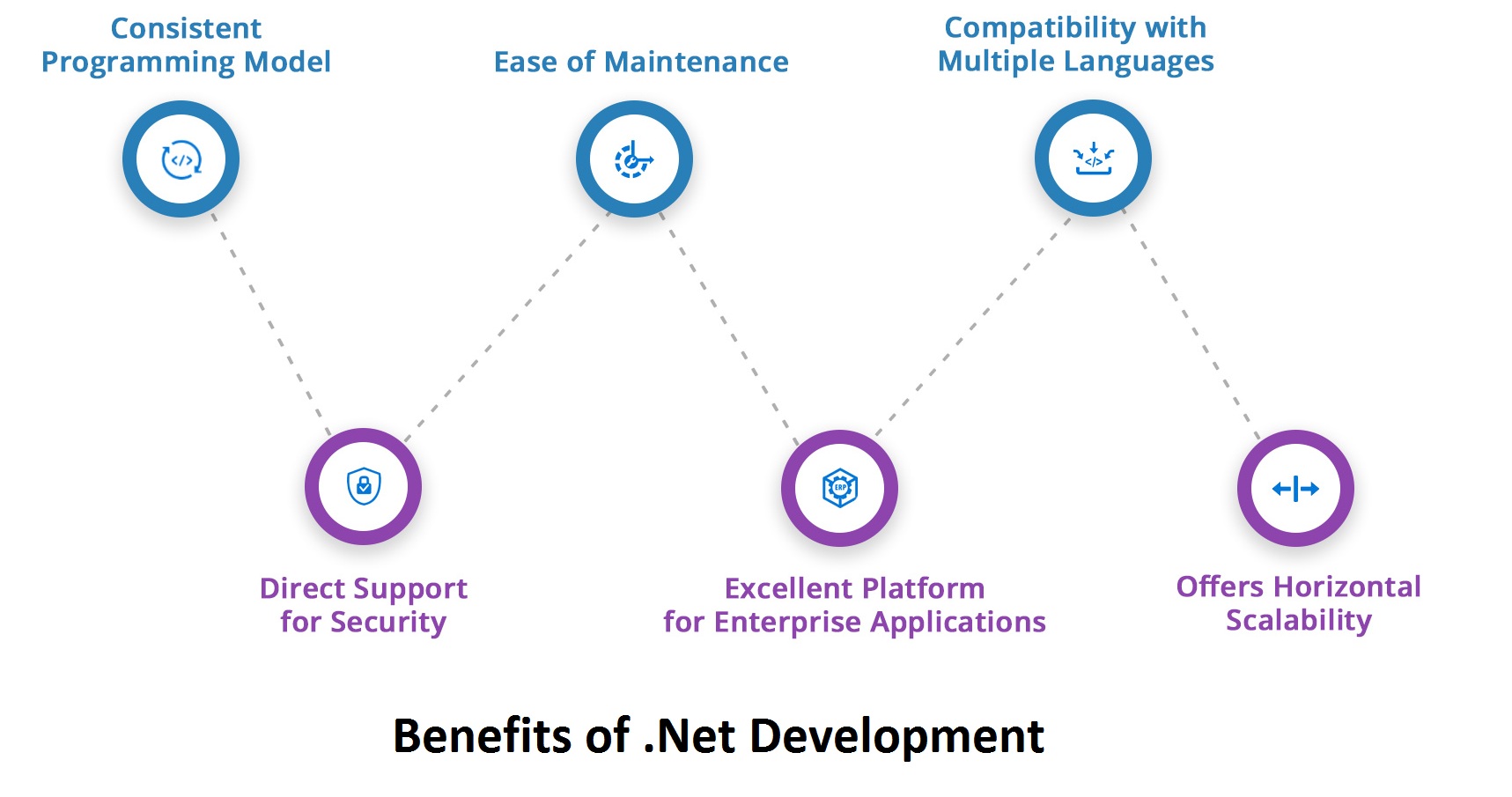Developed by Microsoft and running on Microsoft Windows, the .Net framework is the programming model which supports the building and running of software applications for Windows, Windows Phone, Windows Server, XML Web Services, and Microsoft Azure. It is enriched with the capability of overcoming several problems related to application development such as the inability to change applications fast, longer development cycles, high cost of ownership, and difficulty in deployment.
.Net has proved that it is not about to relinquish its supreme position in the software development space in the near future
The Significance of .Net – Beyond Time
Microsoft’s .Net initiative has pervaded all factors of computing. In the IT industry, .Net touches countless entities, starting with operating systems and web browsers, through servers running the Internet, down to phones, radios, and handheld devices. With Microsoft pitching to change the manner in which Internet applications are developed, accessed and interacted with, there’s little wonder that .Net proves to be significant to all those who need to access information electronically.
Ruling the Roost since the beginning of the millennium .Net is here to stay!
.Net – The Creme De La Creme Choice for Business Application Development
Return on investment is among the critical factors that influence the success or failure of any product or project in its market in the contemporary times. Facilitating the reduction of operational as well as developmental costs for any competent IT organization, .Net framework offer these benefits:
- Reduced coding and increased code reuse: Working on object-oriented programming that eliminate non-significant codes reduces the coding effort from developers’ side. It includes re-usable code as well as several re-useable components. This leads to time and cost saving in application development.
- Reliability: Since its release, .Net has powered thousands of applications. Its performance has been found to be reliable and stable.
- Easy Deployment: Enriched with features such as private components, no-impact applications, partially trusted codes, and side-by-side versioning, the .Net framework renders deployment post development easier.
- Usable across languages and platforms: Developing applications for a browser, mobile device, desktop, or any application that runs on PDA is allowed by .Net. This language-independent framework facilitates development in varied languages such as C#, VB.NET, C++, COBOL, and more.
- Integration with legacy systems: .Net is capable of writing any format of file easily and swiftly and processing all types of XML documents; this offers multiple routes to integrate.
- Service-oriented architecture: .Net can be used for Web Services through which applications can be designed in various platforms or programming languages. Applications may also transmit and communicate data by making use of the standard Internet protocols.
- Partnership with Azure: With cloud stated to be the future, the incredible mix of .Net products on Azure proves incredibly enticing to businesses.
- Easy interoperability: Simpler and safer interoperability is achieved when software is built on .Net.
- Guaranteed safety: .Net continues to be one of the most secure frameworks due to the high-end security features in it
- .Net solutions for mobile development: Creating rich user experience and reaching a wide user base via a single device is made possible in .Net-based mobile apps.

CMS for .Net
Microsoft has provided web content management systems such as Kentico and Umbraco that enable rapid project execution. Web developers need “More for less” and rapid project delivery. Web development platforms such as Kentico and Umbraco help leverage developers’ existing ASP.NET know-how while offering flexibility and complete features set.
With several positive factors such as consistency, security, speed, and scalability, .Net framework continues to rule the roost in the web technologies. Talk to us for your .Net requirements.
















